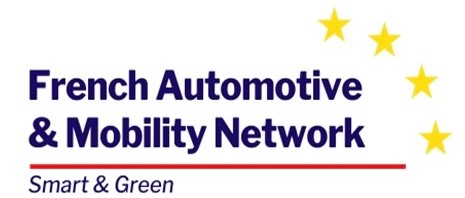Since 1 July, Slovenia has held the Presidency of the Council of the European Union. In addition to the major priorities presented, this article will decrypt Slovenia’s vision on energy and mobility issues. As the last round of the Trio, this Presidency is also an opportunity to draw up an initial assessment of the political programme that has been unfolding for 12 months now.
The general priorities of the Presidency
The six-month programme of the Slovenian Presidency of the Council of the European Union is based on four priorities. They are in line with the slogan “Together. Resilient. Europe”.
Firstly, the resilience, recovery and strategic autonomy of the European Union will be emphasised. The aim is to accompany the strengthening of the EU’s role and to equip it with the appropriate tools to protect the health of European citizens, with the construction of a European Health Union. At the same time, the aim is to ensure a sustainable recovery in all sectors of the economy and public life, with the prospect of a green and digital transition.
Secondly, a Conference on the Future of Europe allows for a comprehensive debate on our common future. The Future of Europe Conference officially started on 9 May 2021 and is expected to end in spring 2022. Its aim is to provide a forum for a Europe-wide debate on what the EU should look like in the future to meet the expectations of its citizens.
The last two priorities will be dedicated – on the one hand to a union of the European way of life, the rule of law and equal standards for all – and on the other hand to a credible and secure European Union, capable of ensuring security and stability in its neighbourhood.
Slovenian vision of energy and mobility challenges
On 14 July, the European Commission published its ‘Fit for 55’ climate package, which aims to reduce emissions by 55% by 2030 and pave the way for carbon neutrality by 2050. Slovenia has a vision for alternative fuels and electric mobility.
From the Slovenian perspective, alternative energy sources are seen as relevant, but it is considered that it takes several years to make them effective. To date, Slovenia’s energy mix is 40% nuclear, 30% renewables and 27% fossil fuels. A drastic reduction in the use of fossil fuels could have considerable economic and social consequences, especially for Slovenia’s two traditional coal-mining regions. On the other hand, Slovenia’s geographical characteristics are an advantage for the use of hydro-renewable energy.
How will Slovenia deal with the social aspect of the Green Deal, for example, with regard to workers in the automotive sector or in the non-clean energy sector who will be affected by the transition?
Regarding the European Green Deal and its consequences on the automotive sector, the Slovenian industry is partly dependent on the activity in Germany and France, as it is mainly composed of suppliers of large European groups. Nevertheless, we note that Slovenia is gradually developing a diversified smart technology sector.
Time for a first assessment of the Trio?
The successive presidencies of Germany, Portugal and Slovenia are part of a common programme defining the subjects to be examined by the Council during this period. While dealing with the Covid-19 pandemic and its consequences has been the leitmotif of the Trio’s joint action, other priorities have been put on the agenda during this 18-month programme: building a climate-neutral, green and fair Europe; taking forward Europe’s digital transformation.
In particular, the European Commission set out its expectations of the new EU Council Presidency, revealing that the Trio is lagging on certain priorities. Ursula Von Der Leyen highlighted the pivotal context in which Slovenia takes the lead in Europe. With the recent publication of the ‘Fit for 55’ climate package, the Commission is counting on the Slovenian Presidency to lead and structure the Council’s work on this dossier. The EU is also counting on Slovenia to help Europe achieve its digital transformation. It welcomes Slovenia’s intention to start trilogues (discussions between the EU institutions) on the Commission’s proposals for a safer and more open European digital space before the end of the year.
